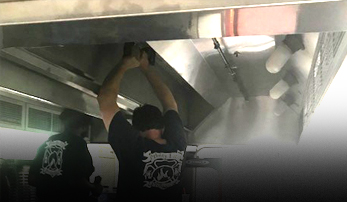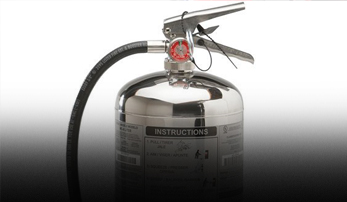Can pinpointing the optimal moment with an aviator predictor truly maximize your winnings before the
- Can pinpointing the optimal moment with an aviator predictor truly maximize your winnings before the crash?
- Understanding the Mechanics of Crash Games
- The Role of Risk Management
- Strategies for Consistent Wins
- The Psychology of Cashing Out
- Evaluating ‘Aviator Predictor’ Tools
- Advanced Techniques and Considerations
Can pinpointing the optimal moment with an aviator predictor truly maximize your winnings before the crash?
The thrill of online casino games stems from the element of risk and reward, and few games embody this as purely as the ‘crash’ style game, often associated with the term ‘aviator predictor‘. These games present a simple premise: watch a multiplier increase as a plane takes off, and cash out before it ‘crashes’. The challenge lies in judging when to secure your winnings, creating a captivating blend of anticipation and strategic decision-making. This article delves into the mechanics of these games, exploring strategies for maximizing potential gains and evaluating the effectiveness of tools claiming to predict optimal cash-out points.
Understanding the underlying principles and potential pitfalls is crucial for anyone venturing into this dynamic world. We’ll explore the concepts of risk management, probability, and the psychological factors that can influence a player’s judgment. Furthermore, we will examine how different approaches to the game, from conservative to aggressive, can impact your overall success and enjoyment.
Understanding the Mechanics of Crash Games
Crash games, at their core, are based on a provably fair random number generator (RNG). This means that the outcome of each round isn’t predetermined but is generated algorithmically, ensuring transparency and fairness. The multiplier starts at 1x and continuously increases over time. Players place a bet at the beginning of each round, and can cash out at any point, securing their initial bet multiplied by the current multiplier. The game ends randomly; the ‘crash’ occurs at a multiplier that has been determined by the RNG.
The key to success isn’t purely luck, it’s about calculating risk versus reward. Higher multipliers offer larger potential payouts, but also carry a greater risk of the game crashing before you can cash out. A carefully considered strategy, combined with an understanding of probability, can significantly improve your chances of winning. Developing a strategy is paramount, considering both personal risk tolerance and potential returns, as the dynamic nature of this game frequently encourages split-second decisions.
| 1.5x | 60% |
| 2x | 40% |
| 3x | 25% |
| 5x | 10% |
| 10x | 2% |
The Role of Risk Management
Effective risk management is arguably the most important aspect of playing crash games. Without a solid plan, it’s easy to get caught up in the excitement and overextend yourself. A common strategy is to use a small percentage of your bankroll on each bet, typically between 1% and 5%. This approach prevents significant losses if you experience a series of unfavorable outcomes. It’s also wise to set loss limits and stick to them, walking away when you reach a predetermined amount.
Furthermore, consider employing a cash-out strategy. Many players opt for automatic cash-outs at a specific multiplier, removing the emotional element from the decision-making process. Others prefer manual cash-outs, relying on their intuition and observation skills. The best approach depends on your individual playing style and risk tolerance. A disciplined approach to bankroll management and a pre-defined strategy are critical for long-term success.
Strategies for Consistent Wins
Several strategies are employed by players looking for consistent wins in crash games. The Martingale strategy involves doubling your bet after each loss, aiming to recoup previous losses with a single win. However, this strategy requires a substantial bankroll and can quickly lead to significant losses if you encounter a prolonged losing streak. Another popular strategy is the D’Alembert system, which involves increasing your bet by one unit after a loss and decreasing it by one unit after a win. This provides a more gradual progression and reduces the risk of large losses compared to the Martingale system. Understanding the pros and cons of each strategy, and tailoring it to your risk profile is the key to long-term profitability.
Beyond these established systems, many players also use self-imposed rules. For example, setting a win target – a specific amount you wish to achieve – and ceasing play once this target is reached, or implementing a ‘stop-loss’ order mechanism. These rules can help maintain discipline and prevent chasing losses. A measured approach, combining pre-defined rules with an understanding of statistical probabilities, is often more effective than relying on gut feelings.
The Psychology of Cashing Out
The psychological aspect of the game plays a significant role in the decision-making process. The increasing multiplier can create a sense of FOMO (fear of missing out), leading players to hold on for longer than they intended, hoping for an even larger payout. This often results in a crash before they can cash out, wiping out their potential winnings. It’s crucial to remain rational and stick to your predefined strategy, avoiding impulsive decisions based on emotions.
Recognizing your own biases and tendencies is also important. Are you naturally risk-averse or a risk-taker? Understanding your personality can help you develop a strategy that aligns with your comfort level. Take breaks when you feel stressed or overwhelmed, and avoid playing when you’re not in a clear state of mind. Maintaining emotional control is as important as understanding the game mechanics.
Evaluating ‘Aviator Predictor’ Tools
Given the inherent volatility of crash games, it’s no surprise that numerous tools and services claiming to predict optimal cash-out points have emerged. These ‘aviator predictor’ tools typically analyze historical data and employ algorithms to identify patterns and predict when the game is likely to crash. However, it’s crucial to approach these tools with extreme caution. While some may offer limited insights, none can guarantee consistent profits. The RNG is fundamentally unpredictable, meaning past performance doesn’t necessarily influence future outcomes.
Many of these tools are based on flawed assumptions or exploit statistical anomalies that are unlikely to persist in the long term. Furthermore, some may be outright scams designed to exploit unsuspecting players. If a tool promises guaranteed wins or requires a substantial upfront fee, it’s likely a fraudulent scheme. A healthy dose of skepticism is essential when evaluating these tools. Remember, the underlying principle relies on randomness, making consistent prediction an impossibility.
- Focus on managing risk rather than attempting to predict the unpredictable.
- Start with smaller bets to test a new strategy.
- Set realistic expectations and avoid chasing losses.
- Don’t rely solely on ‘aviator predictor’ tools – they are not foolproof.
- Play for entertainment, not as a means of generating income.
Advanced Techniques and Considerations
Beyond the basics, there are advanced concepts to consider. Understanding statistical variance is helpful. Even with a sound strategy, you’ll experience periods of winning and losing streaks. The key is to understand that these fluctuations are a normal part of the game. Furthermore, exploring different game providers can reveal subtle differences in their RNG implementation and payout structures. Some providers may offer slightly better odds or more favorable crash patterns.
Another technique involves analyzing the ‘heatmaps’ provided by some platforms. These heatmaps show the frequency of crashes at different multipliers, providing some insight into the historical behavior of the game. However, remember that past performance is not indicative of future results. Combining these advanced techniques with a solid risk management strategy – such as adjustable stake sizes – can further refine your approach and potentially improve your outcomes.
- Establish a firm bankroll management strategy before commencing play.
- Determine your risk tolerance and adjust your betting strategy accordingly.
- Avoid emotional decision-making and stick to your predefined plan.
- Conduct thorough research before using any ‘aviator predictor’ tools.
- Accept that losses are an inevitable part of the game.
| Martingale | High | High | Extensive |
| D’Alembert | Moderate | Moderate | Substantial |
| Fixed Percentage | Low | Consistent | Moderate |
| Auto Cash-Out | Low to Moderate | Dependent on Multiplier | Variable |
Ultimately, success in crash games requires a combination of skill, discipline, and luck. While ‘aviator predictor’ tools may offer limited assistance, they cannot replace a sound understanding of the game mechanics, a well-defined risk management strategy, and the ability to remain emotionally detached from the outcome. Responsible gaming practices are paramount, and it’s crucial to only wager what you can afford to lose.









Recent Comments